Climate change. It’s hard to miss these days. Greta Thunberg, the young climate activist who sailed to New York to speak at the UN Climate Action Summit has been in front of Congress and has been interviewed countless times (see Trevor Noah interview below). Reports of Imelda’s drenching rains in Texas (over 40 inches in some places) have suggested that it has been additionally water stoked by a warmer atmosphere and we may see more of these tropical depressions. Dorian’s cataclysmic stalling over the Bahamas as a Category 5 hurricane is still fresh in many minds.
The New York Times reports that 3 billion North American birds “have vanished” since 1970, a mind-numbing 29% (Loss of habitat and pesticides are identified at primary culprits). Greenland melts, the tundra thaws. In this week’s New Yorker, Bill McKibben published a dire article about the role financial institutions play in funding and insuring companies that support debilitating energy exploration and extraction. Even if one takes a “not happening in my backyard so it must not be happening” kind of approach, it is a fairly loud drumbeat of warnings. Hard to ignore.
.jpg?width=4032&name=unnamed%20(1).jpg)
And at Proctor? Well, the weather has been just stunning. The first light frost dappled significant sections of campus Thursday morning, the apple trees bow heavy with fruit, and the sugar maples are starting to catch fire with fall colors. Over at the Proctor Ski Area the trails are being mowed, and at the rink the compressors hum and the ice is starting to go down. One might be forgiven for believing the climate is good, species are healthy, and balance is being maintained. Hard to believe there is actually anything going on, right?
Not really.
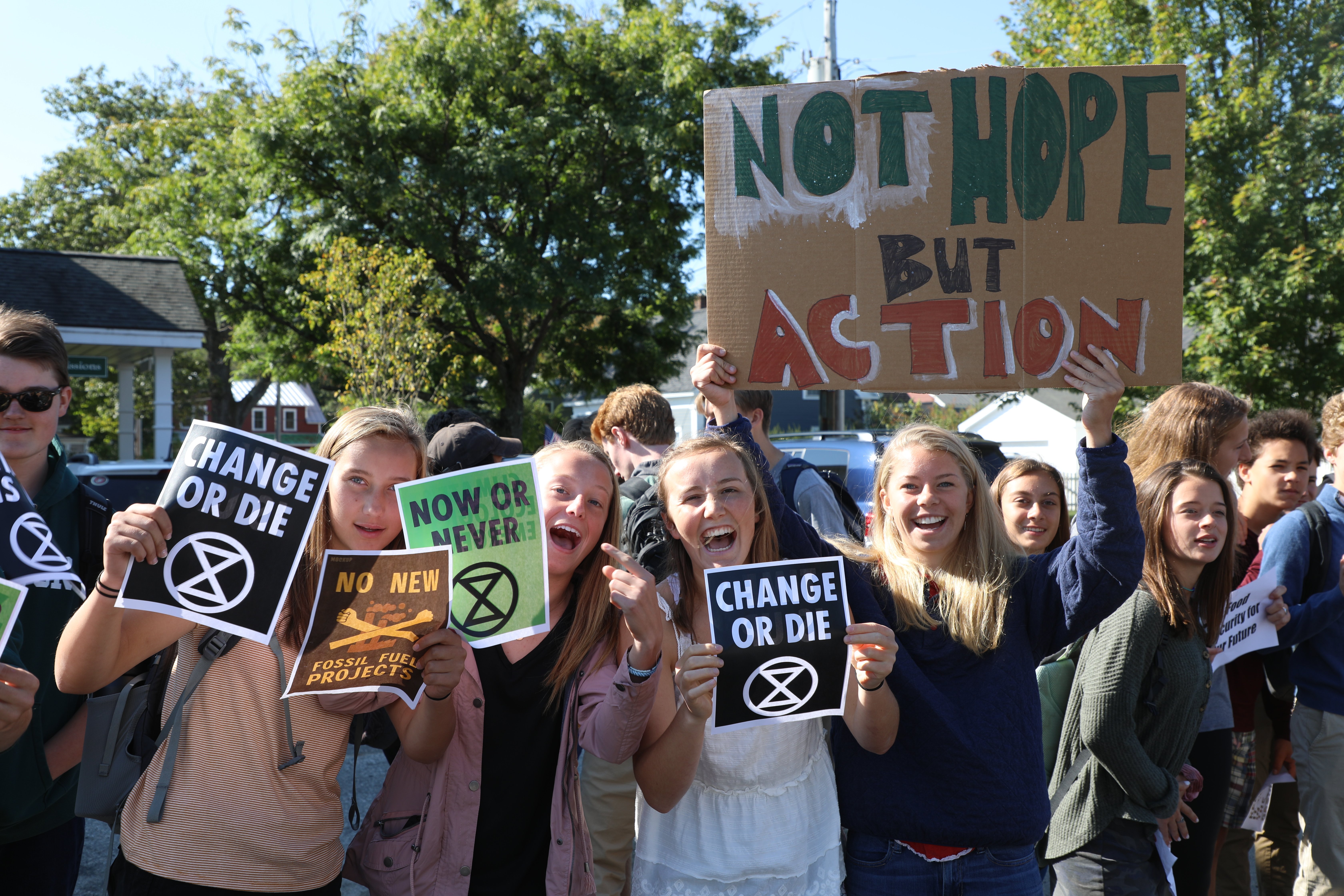
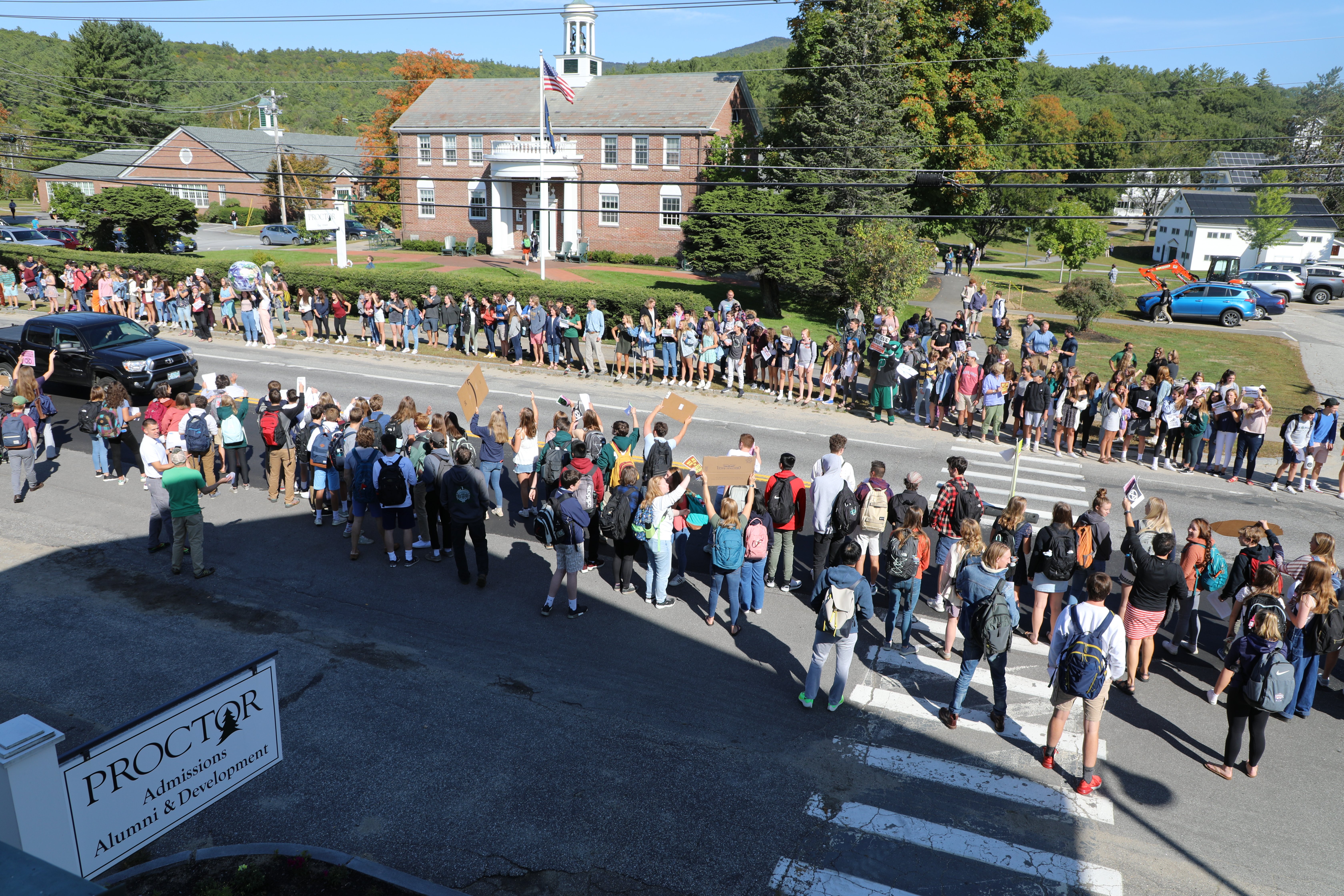
We are a school with an Environmental Mission Statement. We take the external fact feeds about climate and the environment seriously. The sprouting of solar panels on buildings, air-source heat pumps, geo-thermal wells (that you can’t see), and a wood chip fired steam plant are direct outgrowths of that mission. It’s why you will see us get cranky about single use plastic and recycling that has been poorly sorted. It is why students will walk out of assembly today and march in Manchester, participating in the strike advocated by Greta Thunberg. It’s why Alan McIntyre gets fired up when the lights are left on or when there is food waste in the dining commons. It may feel perfect in Andover, NH, but we are not so naive to think that we are bubble wrapped and immune to the effects of climate change. We are part of a larger community. All of us.
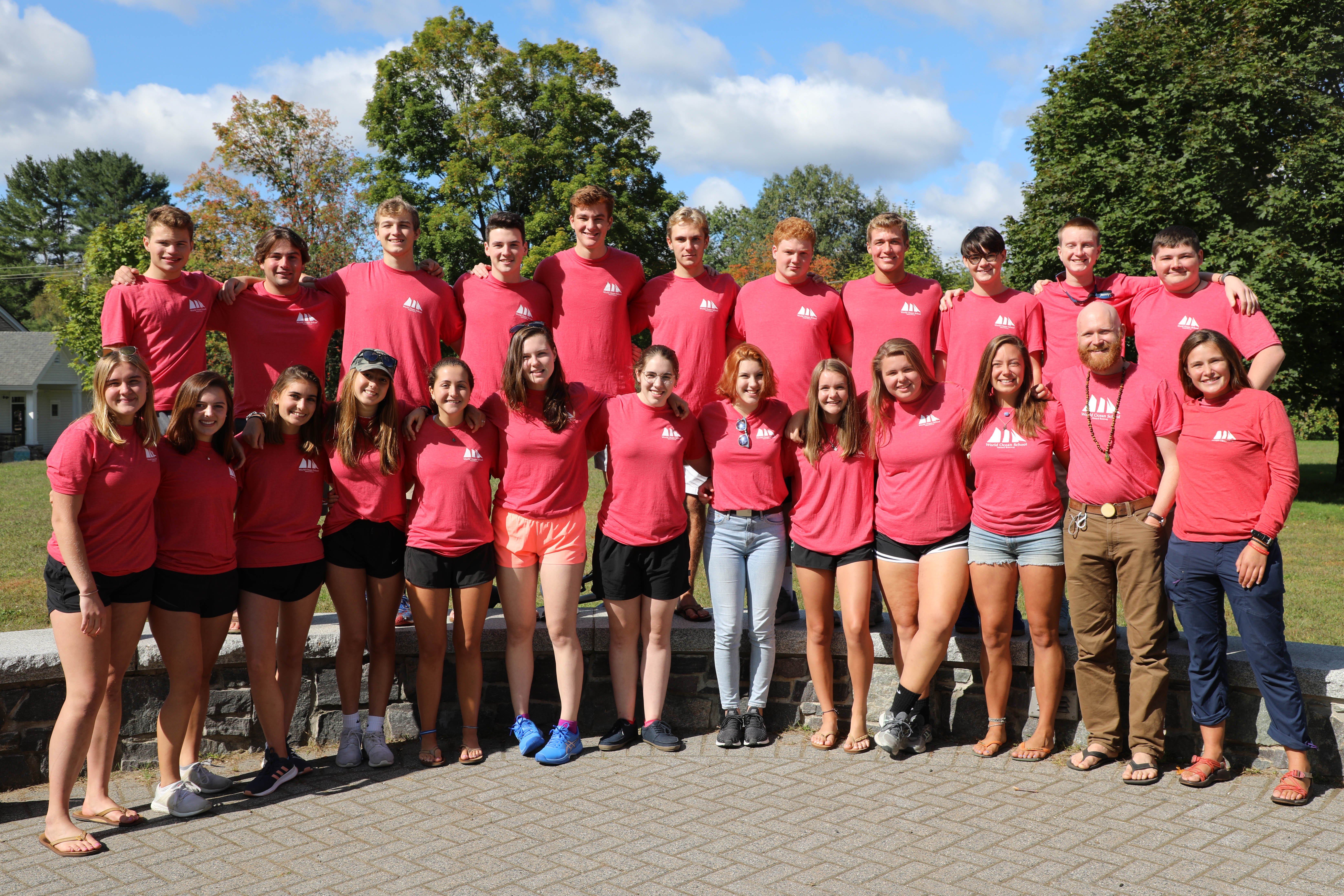
Today there is also a group of students headed to Boston to board the schooner Roseway and begin their voyage down the eastern seaboard on Proctor's Ocean Classroom. This nine week program, in its 26th year, not only immerses students in rich, contextualized learning environments, it brings them face to face with some of the changes brought about by a shifting climate impacted by human activity.
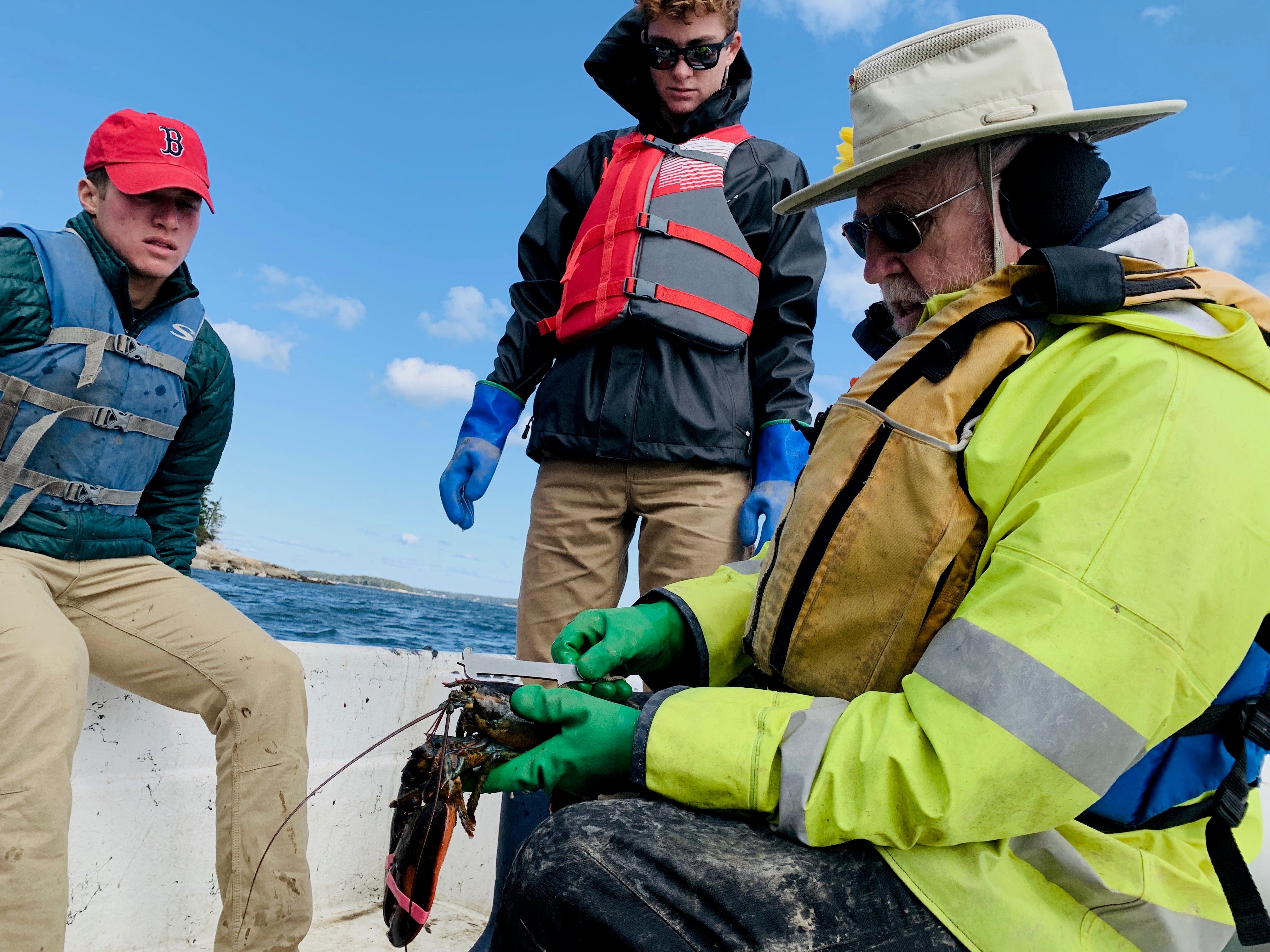
They will see changed shorelines and habitat. They will see debris and degradation, and hopefully, along with learning how to navigate and read the water landscape and enjoying the wonders of Ocean (there is nothing quite like seeing a sunrise while on watch), it will kindle a caring within, the kind of caring that moves beyond empathy to action. Not necessarily the radicalized action of, say, a Greenpeace warrior, but measurable in its effect. Maybe it’s changing a diet or committing to avoiding single use plastic, maybe it’s recycling or avoiding food waste, biking a little more and driving a little less, or maybe it’s about becoming more educated about the role of big banks and insurance in climate degradation (see McKibben article linked above), but it’s a kind of caring that evokes pattern shifts.
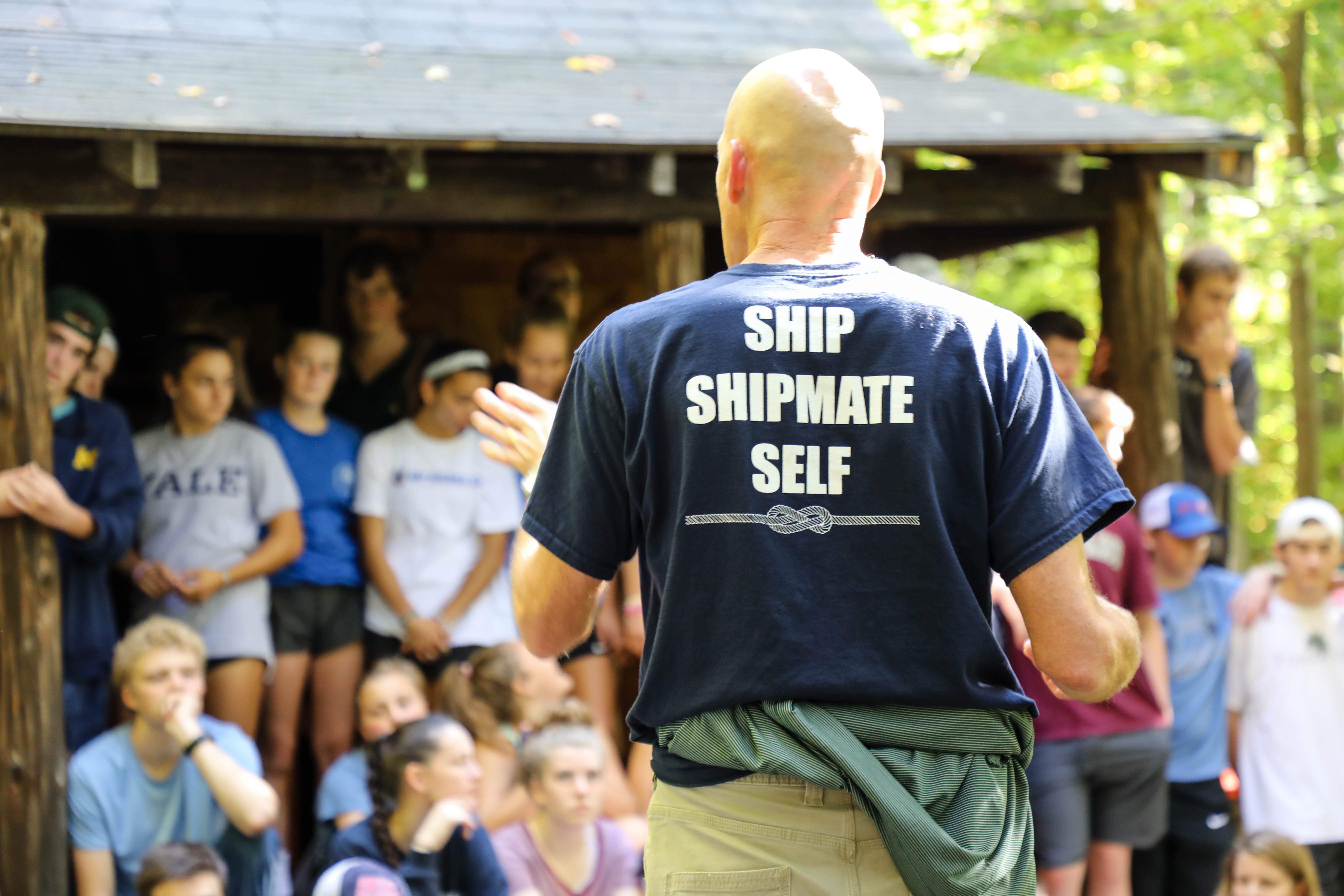
On Ocean Classroom there is a saying: Ship, Shipmates, Self. For the environment maybe it should be: Climate, Community, Caring, and Change.

Mike Henriques P'11, P'15
Proctor Academy Head of School








